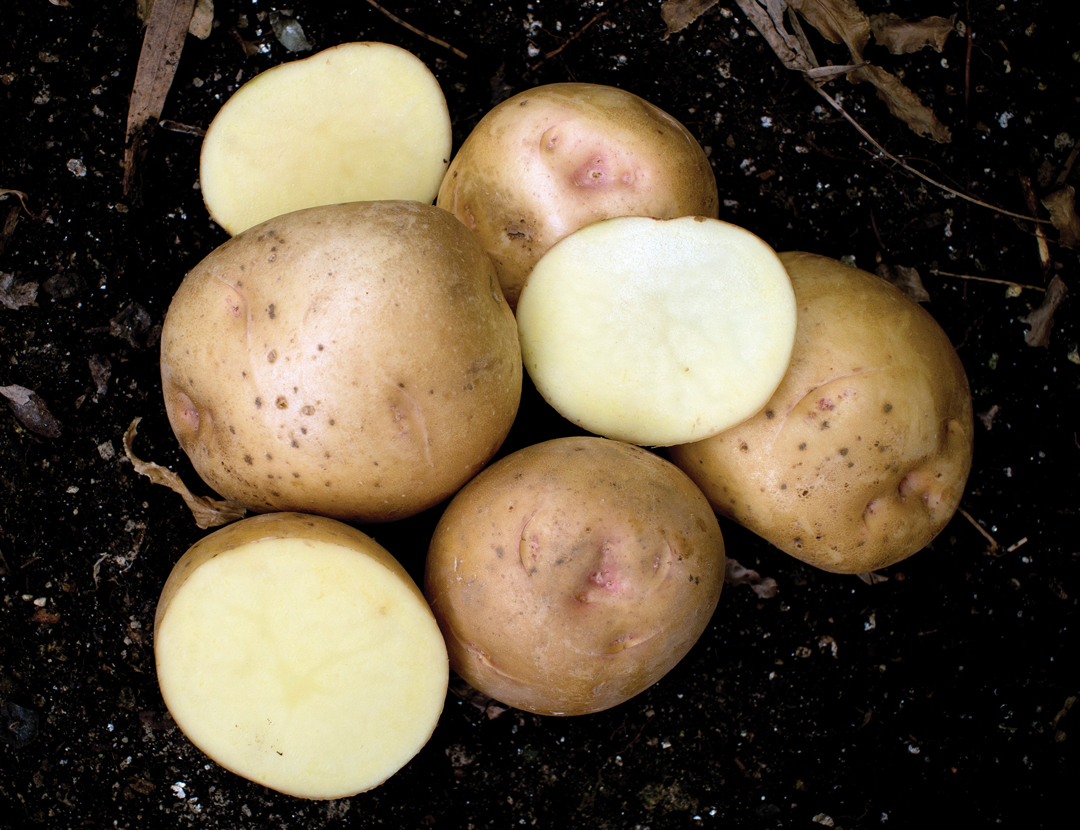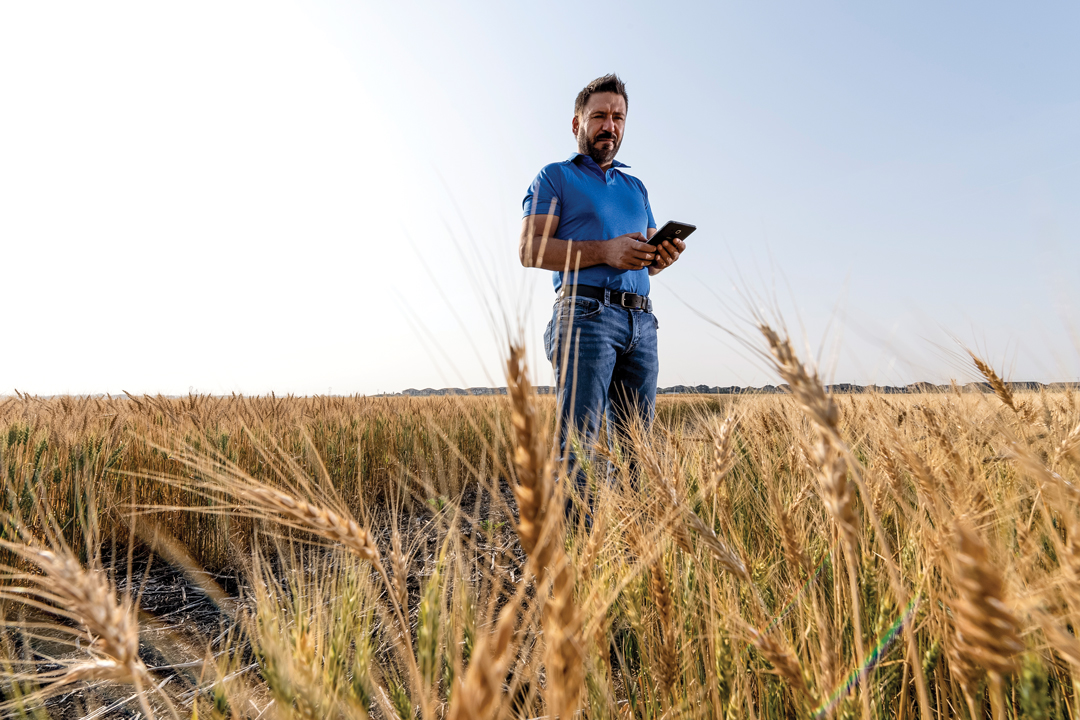GOLDEN YEARS
ICONIC CANADIAN POTATO REACHES IMPORTANT MILESTONE
BY GRIFFIN ELLIOT
Revered by chefs, foodies and potato growers alike, the Canuck born-and-bred Yukon Gold potato celebrates its golden anniversary in 2016.For 50 years the yellow-skinned variety
For 50 years the yellow-skinned variety has been mashed, scalloped, baked and roasted, and we have one Guelph, ON, potato breeder to thank—the late Gary Johnston.
“The timing of it was right,” said Vanessa Currie, a potato breeder and member of the University of Guelph’s potato research program. “It was just as people began to experiment more and become more open to different foods, and different cultures as well.
“Up until that point the potato had simply been sustenance on the plate, it was just a basic filler for the population.” Johnston created the variety in 1966 in response to the large number of European immigrants migrating to Canada. These new Canadian farmers wanted a yellow-fleshed potato like the ones they grew up on back home.
Johnston hoped to “produce a useful, yellow-fleshed potato variety which at least would be welcomed by our new Canadians from Europe,” he wrote in a 1998 letter about the vegetable’s inception. “I suggested the name Yukon (for the Yukon River and gold rush country) and Charlie Bishop suggested we add the word Gold so it officially became Yukon Gold.”
In another letter, this one from 1992, Johnston highlighted the role of brand recognition and good publicity in the potato’s success: “Yukon Gold was the first Canadian- bred potato variety to be promoted, packaged and marketed with its name right on the pack. It also received excellent promotion by the media and by magazines.”
Currie had the opportunity to work with Johnston for two years in the early ’90s when he agreed to come out of retirement to fill a gap in the University of Guelph potato breeding program.
“Gary was very generous in terms of his knowledge and his time and his wisdom,” she said. “He conducted his own private breeding at home even after he was retired. He had a greenhouse on his plot. He was passionate about it… He had a really good eye for his crop in terms of recognizing a variety that had something special.”
The Yukon Gold is assuredly something special. In accordance with all three metrics used to measure culinary quality— appearance, texture and flavour—it is exceptional.
The potato breeding industry is constantly evolving, Currie said, with new varieties emerging every year. However, even though the potato market is extremely diverse, it doesn’t look like any one variety will be eclipsing the Yukon Gold anytime soon.
On Prince Edward Island, Canada’s potato powerhouse, the Yukon Gold continues to be grown, even as newer varieties with beneficial characteristics have been developed.
“Yukon Gold has been an important part of the mix of P.E.I. varieties for many years,” said Mary Kay Sonier, seed co-ordinator for the Prince Edward Island Potato Board. “The recent introduction of many yellow-flesh potato varieties that have improved production characteristics for growers, such as greater yield and improved disease resistances, has led to reduction of Yukon Gold acreage over recent years. However, Yukon Gold is still grown on P.E.I. by producers who supply a niche market supported by loyal customers of the variety.”
In the cultural mosaic that is Canadian society, we take pride in combining elements of the “old” to create an inclusive “new.” In 2016, 50 years after it was first harvested from the soil, the Yukon Gold potato acts as a powerful symbol of Canadian identity and a representation of our societal values.
“By developing a variety to suit the taste of new Canadians, it opened the door to other crops and other potatoes to develop things for newcomers and expanded the palate of Canadians,” Currie said, adding that without the Yukon Gold, “we might not have the great diversity in Canadian food that we have.”







Comments